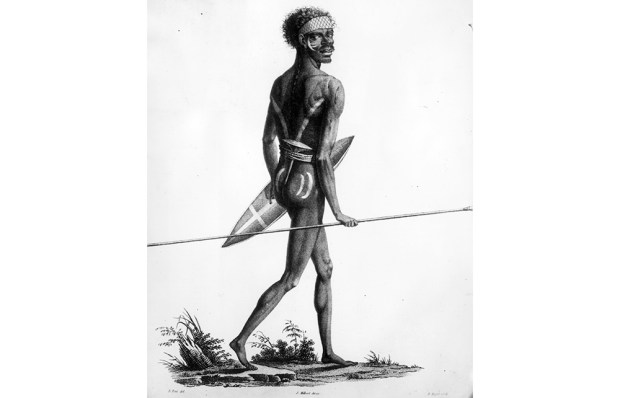Reading the works of Confucius and other Chinese ancients recently, with their guidance for a life of introspection and honesty of soul, I was saddened at the thought that these philosophies are no longer wanted in their homeland, with the government of China suppressing them out of a concern that they could give rise to a people’s movement. It occurred to me, however, that these teachings would be just the ticket for Australia right now, and I have subsequently been developing a proposal. It is an initiative that is bold, yet elegant and pleasing, as it would be for the betterment of both nations.
Confucius (551 BC) says that the five qualities of the moral person are self-respect, magnanimity, sincerity, earnestness and benevolence. With these qualities in view, I suggest that the teachings of the Chinese ancients be given a new home in Australia. This would relieve the government of China of the menace that Confucian wisdom poses to it whilst adding some refinement to the Australian character. It would also address two of the great challenges of our time: to soothe the frictions presently afflicting relations between the two countries and, concurrently, to bring a smile to the faces of the officials of the Chinese government.
But no undertaking of this stature is without its obstacles and, in the course of my due diligence, one has arisen that I did not foresee. Conscious of the fact that these teachings might not bear fruit in all climes, I needed to be sure that Australia would be a suitable receptacle for them, for if Australia was not, all of my efforts would be like ‘dragging the lake for the moon in the water’, to cite an ancient eastern proverb. ‘I do not expound my teaching to any who are not eager to learn,’ said Confucius. ‘If, after being shown one corner of a subject, a person cannot go on to discover the other three, I do not repeat the lesson.’ The question therefore became: is the Australian character one that would seek out the other three corners? Or would Australians pay lip service to the Chinese ancients and rest on their laurels?
It was in the course of my field research into this that I encountered an unusual difficulty, and one, as far as I am aware, that is unique to the Australian condition. I found that only about half of the Australian populace, being the people of self-reliance in private enterprise, would be receptive to the Chinese wisdom, whilst those whose livelihoods are tenured or otherwise secured would, in a peculiar way, remain immune.
To illustrate with an example, one of the people I reached out to was an old acquaintance now at the Department of Foreign Affairs and Trade (DFAT). I emailed her and, with her calendar free for the month, and working from home this year, she was able to meet with me at a cafe. I outlined my vision for these teachings to be implemented into Australian education curricula and workplace cultures, which I was hoping she could help facilitate, and I recited some wisdom from Lao Tzu (604 BC): ‘The person who is self-approving does not shine. The person who boasts has no merit. The person who exalts themself does not rise high.’ Upon hearing this, however, her eyes moistened and I noticed a quiver in her lip as she sighed, barely above a whisper, ‘That’s me.’ I thought this was a transitory moment of self-reflection before coming to the business at hand, but no. She was reading it as self-congratulation rather than self-critique and there was nothing I could do to correct her perception.
When I spoke to people in the private sector, including company directors, small business owners and taxi-drivers, they saw opportunity for themselves and others. ‘I like it’; ‘Where do I find books on this?’, they said. Or, ‘Get the word out’; ‘We’ll be a better place’; ‘How can I help?’ However, every time I met with someone whose livelihood and lifestyle bore no correlation to their abilities or capacities for work, I was met with the same layers of irony as had come from my friend at DFAT.
This was true even of the judiciary. I met with a senior Australian judge to sound him out on the possibility of these Chinese wisdoms finding their way into law and legal precedent, and I read to him from Mencius (371 BC): ‘Of the qualities of the sage, none is greater than that of being a helper of men to right living. He is ashamed of a reputation beyond his desert.’ The judge sat silently for a moment before turning to me with a grave countenance, and, summoning all of his judicial gravitas, said, ‘I want that on my headstone.’ I soon afterwards took my leave of His Honour but, having to come back for my hat, which I had inadvertently left behind, I was subjected to more of the same. ‘I’ll also use it in the title of my autobiography.’
So it was that I was confronted with the paradox that, in Australia, those most in need of ancient Chinese wisdom are those who consider themselves already fully versed. The residue of conceit in the Australian character, I now knew, was confined to that one half of the population. But this realisation has not dampened my resolve to see these teachings introduced into the Australian way of life, which is a measure that would complement the existing esteem we have for Chinese cultures over and above our own.
Nor is there anything in this for the Chinese government to fear. I am aware that the people of China sometimes privately say of their government officials that they ‘take trees and grass as enemies when the wind blows’. But I assure the good people of the government of China that my proposal represents no ill wind. It is a wind of welcome, and one with manifold benefits, although none for myself. I seek nothing in terms of honours, recognition or material reward. Only the spiritual nourishment that would flow.
Got something to add? Join the discussion and comment below.
Craig Pett blogs at pettblog.com
You might disagree with half of it, but you’ll enjoy reading all of it. Try your first month for free, then just $2 a week for the remainder of your first year.













